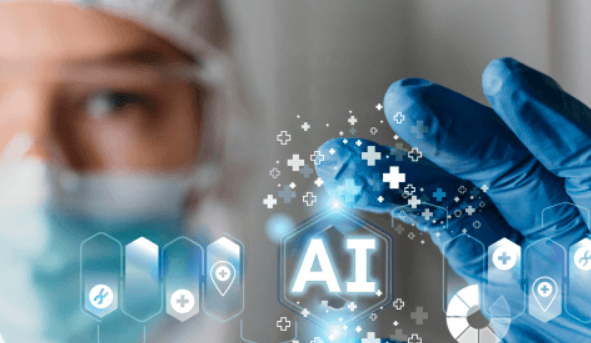Artificial Intelligence (AI) is opening up exciting opportunities in healthcare, revolutionizing how medical professionals diagnose, treat, and manage diseases. With its growing capabilities, AI offers solutions that improve patient care, reduce costs, and increase efficiency.
1. Early Disease Detection
AI can analyze vast amounts of data to detect patterns that signal the early stages of diseases like cancer, Alzheimer’s, and cardiovascular conditions—allowing for timely intervention and better outcomes.
2. Personalized Treatment
AI enables tailored treatment plans based on individual patient profiles, including genetics, lifestyle, and medical history. This results in more effective therapies and improved patient satisfaction.
3. Streamlining Administrative Tasks
AI automates routine administrative duties such as appointment scheduling, billing, and medical record management. This reduces human error and frees up staff time for more critical tasks.
4. Enhancing Radiology and Imaging
AI-powered tools assist radiologists by identifying abnormalities in medical images with high accuracy. These tools speed up diagnosis and reduce the chances of oversight.
5. Advancements in Drug Discovery
AI accelerates drug research by predicting how compounds interact with disease targets. This shortens development timelines and lowers the cost of bringing new medicines to market.
6. Remote Patient Monitoring
Through wearable devices and mobile apps, AI can monitor patients’ health in real time, alerting doctors to potential issues. This supports proactive care, especially for chronic disease management.
7. Improving Patient Engagement
AI-driven chatbots and virtual assistants keep patients informed, remind them about medication, and answer health-related questions, encouraging better adherence to care plans.
8. Supporting Clinical Decisions
AI tools help doctors by providing evidence-based recommendations and highlighting potential treatment risks, leading to faster and more informed decisions during consultations.
9. Expanding Telemedicine Services
AI enhances virtual care by offering instant triage, analyzing symptoms, and supporting diagnosis during remote consultations, improving access in rural and underserved areas.
10. Predicting Health Trends
Healthcare providers and governments can use AI to monitor population health trends, track disease outbreaks, and plan resources effectively, enhancing public health management.
Conclusion
AI presents vast opportunities in healthcare that go beyond just improving technology—they enhance patient experiences, streamline operations, and make care more accessible. Embracing these opportunities will pave the way for a smarter, more responsive healthcare system.







Leave feedback about this